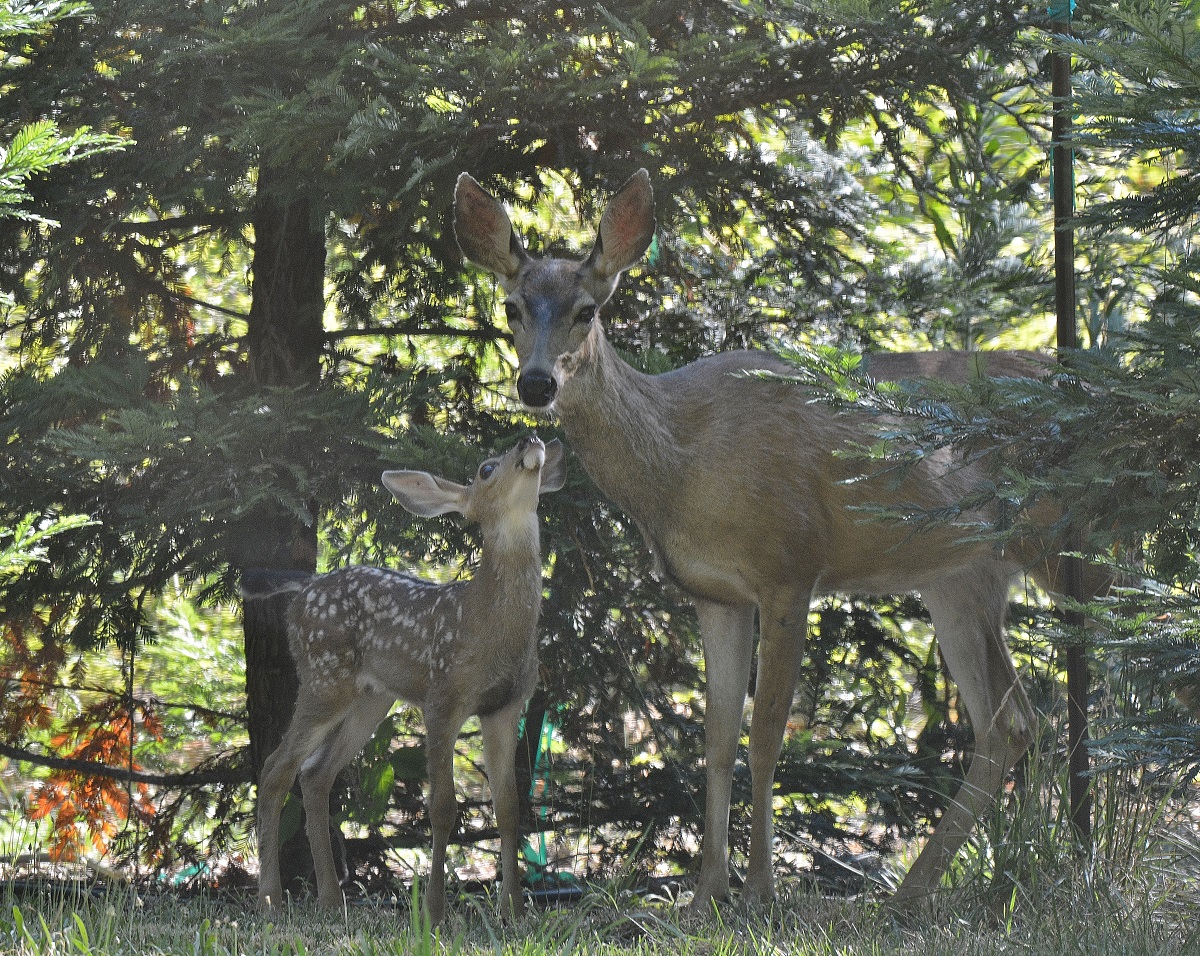Fish Report for 12-6-2017
In Response to: "Feral Horses and Burrows: When to Say When"
by Marybeth Devlin
12-6-2017
Arbitrary Management Level (AML): The number of wild horses "thought by BLM to achieve ecological balance" — 26,715 — is a political construct. BLM uses the AML to concoct the perception of a crisis. BLM must have a crisis. Why? Politically, agencies have to justify their existence. They must show they are needed. Nothing works better than a "crisis" to secure continued and even increased funding. Think: Jobs, paychecks. BLM then chooses high-cost management-methods, such as multi-million-dollar contracts for helicopter-roundups, contracts against which the agency can add on its 20% administrative fee.
Sparsely Populated, Widely Dispersed: Wild horses are few and far between. Per the 31,583,386 acres (49,349 square miles) of dedicated wild-horse habitat, the AML establishes a maximumstocking density of 1 wild horse per 1,182 acres (nearly 2 square miles). Even if the on-the-range wild-horse population really were 72,674 (hint: it can't be), that would mean a stocking density of 1 horse per 435 acres (⅔ of a square mile). No reasonable person would consider that overpopulated.
Contrast with Livestock Density: To put this in perspective, on the same land, BLM sets a stocking density of 1 cow-with-calf pair (or 5 sheep) per 76 acres, which means 8 cow-calf pairs (or 40 sheep) per square mile. Further, within wild-horse habitats — where the mustangs are, by law, supposed to receive principal benefit of resources — livestock are often awarded 90% of the grazing slots.
Normative Annual Herd-Growth = at most, 5%: Gregg, LeBlanc, and Johnston (2014) found the average birth rate across wild-horse herds to be just under 20%. But they also found that 50% of foals perish before their first birthday. Thus, the birth rate is just a temporary blip in the data. Starting with the surviving-foal rate (10%), and then subtracting a conservative estimate of adult-mortality (5%), the expected normative herd-growth rate would be, at most, 5%. At that rate, it would take 14 years for a horse-herd to double. The corresponding growth-rate for burro-herds is 2%; thus, it would take 35 years for a burro-herd to double.
Fraudulent Figures on the Range: Why am I and other advocates persuaded that there can't be anywhere near as many wild horses as BLM alleges? Because BLM's herd-growth figures are falsified. Repeatedly, we find BLM reporting one-year increases that are 50, 100, even 200 times the norm, far beyond what is biologically possible. Examples:
237% — 47 times the norm — Great Divide Basin **
260% — 52 times the norm — Shawave Mountains
293% — 59 times the norm — Diamond Hills South
418% — 84 times the norm — Black Rock Range East
522% — 104 times the norm — Salt Wells Creek
1,218% — 244 times the norm — Centennial
1,257% — 251 times the norm — Carter
** BLM claimed the population grew from 199 horses to 670 horses in one year, an increase of 471. If so, that would mean each filly or mare gave birth to 9 or 10 foals.
Fraudulent Figures off the Range: A White Paper was just released following a 5-year investigation by Wild Horse Freedom Federation. It disclosed that BLM has been publishing fictitious figures regarding the number of wild horses previously removed from the range and now supposedly boarded in private pastures. BLM is paying, but where are the horses? wildhorsefreedomfederation.org/white-paper/
Fraud and Embezzlement Are Crimes: BLM's representations with regard to wild horses and burros are false and misleading. Making false and misleading representations = fraud, which violates Title 18 USC 1001 of the Federal criminal code. Embezzlement and theft violate various sections of Title 18 USC Chapter 31.
Slaughter Is Not a Solution: Fraud has turned BLM into the Bureau of Lies and Malfeasance. Slaughter would not fix the fraud. Slaughter would reward and perpetuate the fraud.
Adoptions: The adoption-market is not "way down." There's just been a change in the definition of an "adoption." Back-in-the-day, BLM actually used to count sales-for-slaughter as "adoptions." Nowadays, only true adoptions — forever-family placements — qualify. However, wild horses are not homeless horses. They have a home — where they belong — on the range.

Website Hosting and Design provided by TECK.net

